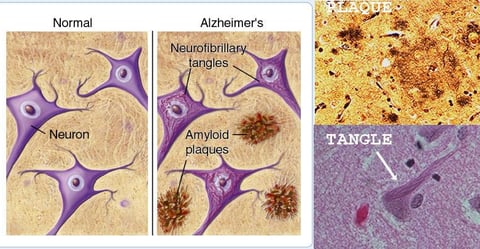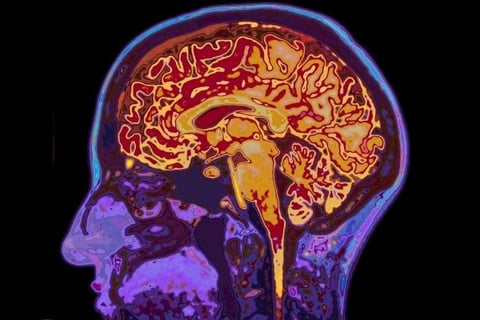Alzheimer's disease: unraveling the origin & complex causes
ALZHEIMER'S & DEMENTIAHEALTH CONDITIONS
E.C | Pharmacist
8/23/20233 min read


The Cellular Cascade: A Closer Look at Alzheimer's Pathology
At the heart of Alzheimer's disease lies a destructive process that primarily affects the brain's neurones. The disease is characterised by the accumulation of two abnormal protein aggregates: beta-amyloid plaques and tau tangles. Beta-amyloid plaques are formed from the accumulation of misfolded beta-amyloid proteins, while tau tangles arise from the abnormal accumulation of tau proteins within neurones. [1]
These protein accumulations disrupt communication between neurones, leading to their dysfunction and eventual death. This loss of neurones results in the cognitive decline and memory loss that are hallmark symptoms of Alzheimer's disease. [1]
Risk factors:
Genetics
While the exact cause of Alzheimer's disease remains unknown, genetics play a significant role in predisposing individuals to the condition. Mutations in certain genes, such as the amyloid precursor protein (APP) gene, presenilin 1 (PSEN1) gene, and presenilin 2 (PSEN2) gene, are associated with the early-onset form of the disease, which typically manifests before the age of 65. However, these genetic mutations account for only a small percentage of Alzheimer's cases.
Apolipoprotein E (APOE), a gene with different variants (alleles), is also linked to Alzheimer's risk. The APOE4 allele increases the risk of developing the disease, while the APOE2 allele appears to offer some level of protection. Still, having the APOE4 allele does not guarantee that an individual will develop Alzheimer's, highlighting the complex interplay between genetics and environmental factors.
Environmental Factors
Environmental factors, including lifestyle choices and overall health, contribute significantly to the development of Alzheimer's disease. Cardiovascular health, for instance, is closely linked to brain health. Conditions such as hypertension, diabetes, and high cholesterol can impair blood flow to the brain, increasing the risk of cognitive decline.
Moreover, a sedentary lifestyle, poor diet, lack of cognitive engagement, and social isolation have all been associated with an increased risk of Alzheimer's disease. The "use it or lose it" principle holds true for the brain—engaging in intellectually stimulating activities throughout life appears to help maintain cognitive function and reduce the risk of cognitive decline.
Inflammation's Role in Alzheimer's
Neuroinflammation, the brain's immune response to injury or infection, also plays a role in Alzheimer's disease. Microglia, the brain's resident immune cells, become overactivated and release inflammatory molecules in response to the presence of beta-amyloid plaques and tau tangles. While inflammation is a natural defence mechanism, chronic and sustained inflammation in the brain can exacerbate neuronal damage and contribute to disease progression.
The Future: A Holistic Approach to Understanding and Prevention
As we strive to unlock the origin and causes of Alzheimer's disease, it's evident that a multifaceted approach is essential. The disease's complexity requires us to consider genetics, environmental factors, cellular pathology, and inflammation in a holistic manner. Ongoing research endeavors aim to illuminate the intricate connections between these elements, potentially paving the way for earlier detection, personalized treatment approaches, and effective preventive strategies.
In the meantime, maintaining a heart-healthy lifestyle, engaging in cognitive and social activities, and staying informed about the latest developments in Alzheimer's research remain crucial steps in the fight against this challenging disease. With each discovery, we come closer to unraveling the mysteries that shroud Alzheimer's, offering hope to those affected and their loved ones.
Alzheimer's disease, a progressive neurodegenerative disorder, has been affecting over the lives of millions around the world. First described in 1906 by neurologist Alois Alzheimer, this disease remains a scientific enigma due to its complicated web of causes and origins. This article digs in common causes and risk factors associated with this disease.






TheRemotePharmacist Ltd © 2022
The Remote Pharmacist is an online platform created by a pharmacist that aims in delivering updated and trustworthy information and advice on anything related to pharmacy and healthcare.
Reframe your inbox
Subscribe to our newsletter and never miss an article.
We care about your data in our privacy policy.


